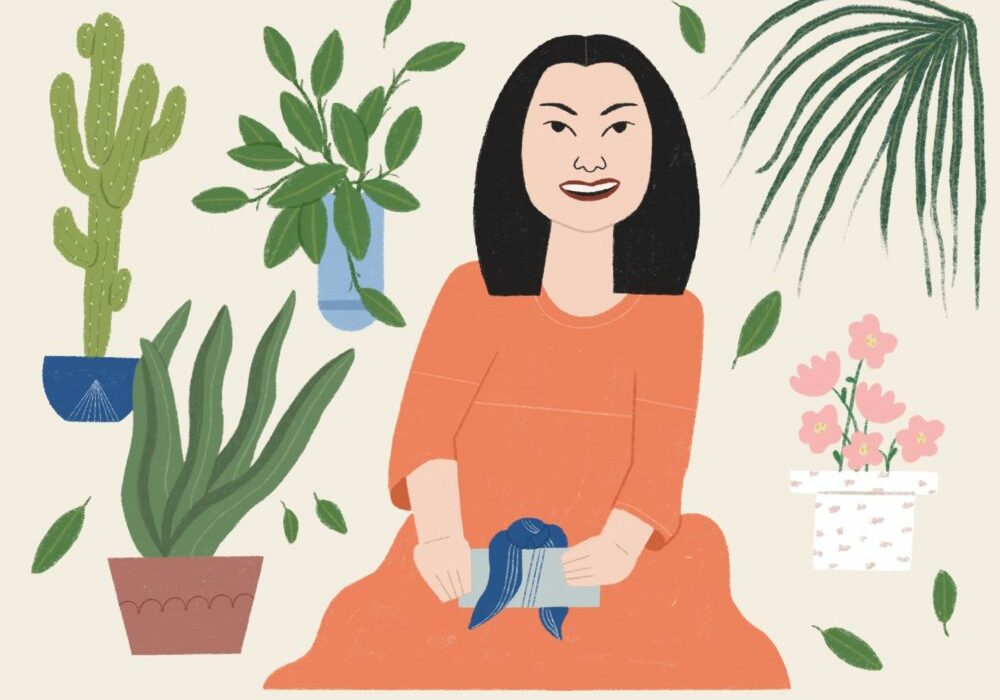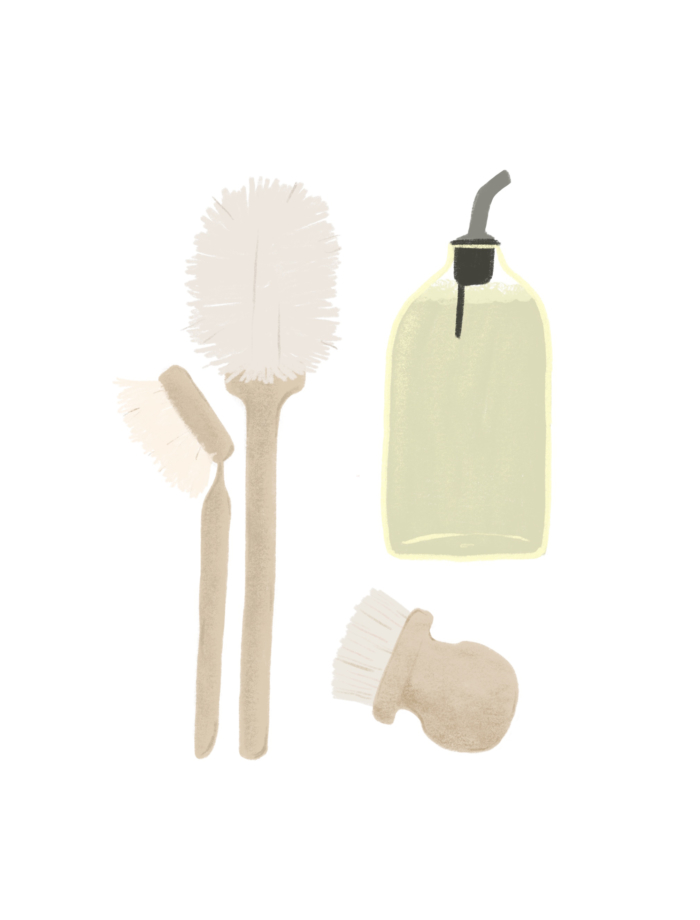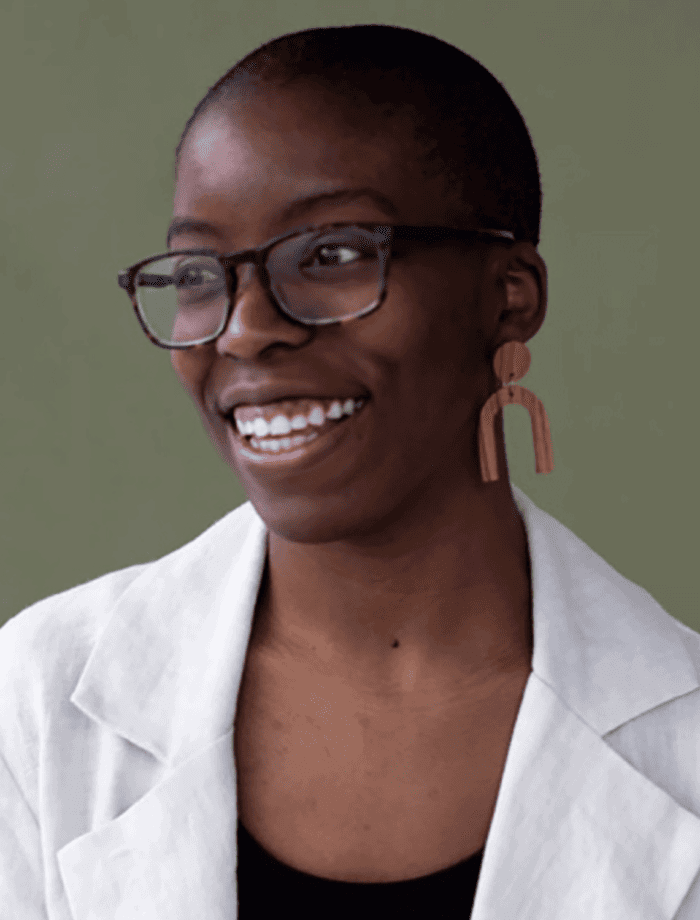Illustration by Hawnuh Lee.
Sara Kiyo Popowa is a creative in every sense of the word. Classically trained in visual art and dance, she is unafraid to push the boundaries of any discipline she works in. Behind the stunning photographs on her Instagram feed and a grin warmer than her homegrown squash soup, Sara has a fierce sense of purpose. She is dedicated to teaching others how to eat sustainably—minimizing food and packaging waste through thoughtful but simple preparation. Before you get lost in her stop motion animations*, take a moment to read through our delightful conversation.
*The number of hyperlinks in this paragraph is reflective of my enthusiasm for everything Sara does.
When someone asks you what you do for a living, what do you say?
I call myself an artist because that’s the only way that I can fit the variety of things I do into one description. I studied performance art and worked as a graphic designer for a few years, so I very much come from a visual background. I’ve also written two books—the first is my cookbook, Bento Power, and the second is a guidebook called An Opinionated Guide to Vegan London.
I try to turn as many people as possible onto the reality of what one’s personal impact on the environment can be.
I’m trying to do a million things simultaneously. Everything that I am doing excites, but I sometimes feel like I’ve taken too many things on. As a freelancer I think that feeling is quite regular. I do a mixture of pushing my mission forward through Instagram and through events that take place in London, which is everything from supper clubs to workshops to talks. Commercial jobs doing photography, art direction, and consultation also support me so that I can spend time on my more mission driven work.
What is that mission?
I try to turn as many people as possible onto the reality of what one’s personal impact on the environment can be. I do that through the things that I enjoy and that I’m good at—taking pictures, writing, and getting people together.
You grew up in Sweden with Japanese and Bulgarian roots, and studied in Japan before settling in London. How does your upbringing influence your work today?
Something that comes from living in different countries and cultures is this insight of realizing that you can look at things in so many different ways. I learned quite early that everything that you think is normal when you grow up in the same place is only normal in the place where you grew up, something else is normal elsewhere.
It’s not practical or possible to be plastic free in all instances, and I like to be as transparent as I can about that.
The first time I went to Japan I was seventeen and on a year exchange, and I was completely shocked by the gender disparity I saw. In Sweden there was equality between sexes, we were all the same. What I experienced in Japan was teenage girls being kind of subservient to the boys in class. I don’t know if it’s like that anymore but it was very strange as a teenager to realize that was the norm there.
I think that in the blog / social media / influencer sphere there are a lot of black and white views—like, ‘This is what I do and that’s the right thing, and eat this, and this superfood…’ I just don’t buy any of it, and I try to make a point out of that on my social. For example, I’m doing this minimal plastic challenge but I definitely mess up. It’s not practical or possible to be plastic free in all instances, and I like to be as transparent as I can about that.
Same with the way I eat. Many people think that I am vegan but I don’t actually use that description about myself anywhere. I say that I have small amounts of animal products because that’s what works for me. I’m not 100 percent anything. Being half Bulgarian and half Japanese growing up in Sweden, no one could ever say to my face that anything is 100 percent true.
Tell me about your relationship to food and environment growing up.
In Sweden, an awareness of nature and that we need to treat it kindly was a big part of life. It was woven into my school’s curriculum and my interactions with my friends. Over the summer holidays, staying out in the country for a few weeks and living really simply was quite common. I was influenced by my parents as well, they were into eating healthy and not having too much sugar or processed food, which I of course hated as a child because I wanted to eat all those things.
I very clearly remember a moment when I was around fifteen when I became aware of environmental destruction in the news. I said to one of my teachers, ‘I don’t know if there’s any point in me going to university and trying to get a good job because I feel that we are destroying our environment.’ And I carried that for quite some time.
I did get distracted and did many other things—I think I had to deal with some personal stuff first like a lot of people do—but now I feel like I am coming back to that childhood self who cares so much about that one thing. It feels really honest to let that be a focus of my work in a more explicit way.
I’m kind of obsessed with your stop motion videos, how did you get into that style?
I think it started because I would spend ages creating a picture and then feel like, ‘I can’t just disassemble it now.’ I wanted to do something more with it. So I started taking images while I removed everything from the board, like on one of those big shopping flatlays that I do. And then of course when you play it backwards it looks like you’re building—one of my trade secrets! I just found that so satisfying to do, and I also love the image quality that you get when you’re using stills with natural light, which shifts a little bit. It’s different from one of those sped up how-to videos.
What are people’s attitudes toward sustainability and food like in London?
I’ve seen a huge change in just the last two years. I live in the city which is different from the rest of the country, things move much faster and more people are early adopters. Sustainability went from being something no one really talked about to something people were suddenly very aware of. Environmental issues like the overuse of plastic, food waste, and the fact that meat and dairy use up so many resources—people are starting to make those connections.
People are trying to learn what options they have to make an impact, and we see that how you eat is massive.
Now you see it everywhere, in ads and mainstream media, all these major supermarket chains are suddenly making a big thing out of the fact that their packaging is recyclable or that they are working on programs to reuse or donate leftover food. To a point I’m sure it’s just greenwashing or trying to appear like they are doing something about the problem, but I am also hearing from inside of companies that there is much more on the agenda. I think businesses are moving faster than the government to be honest.
Pretty much everywhere you go in London there will be vegan options, even in the normal shops and pubs. That just happened in the last couple of years. Part of it is that it’s a bit of a fashion, a bit of a trend. But I also think that it goes hand in hand with the anxiety that a lot of people are feeling for our future. People are trying to learn what options they have to make an impact, and we see that how you eat is massive.
I think that David Attenborough’s Blue Planet series really pushed the general population into knowing that this is going on. When someone who is a beloved public figure like him starts talking about it and showing it in his visual way, it has an impact. When you take an Uber and the driver starts talking to you about the environment, that’s when you realize it has definitely come into the mainstream consciousness.
What would you say to someone who wants to get into low waste cooking but doesn’t know where to start?
I don’t know what it’s like to never cook or not be interested in food at all, but that is the case for some people. I think you need to start with something that motivates you—whether that is trying to reduce your impact and produce less waste, or just that you want to eat well and feel good. You need to find your motivation because otherwise it’s hard to keep it up. It’s a practice more than anything else. Just like if you do yoga or any kind of artwork, the whole thing is that you are doing it every day.
You are known for your bento boxes, which are made up of a vibrant mix of pre-prepped dishes and are designed for on-the-go. Do you have any practical tips you can share to help us with our own meal prep?
Start with something small. If you notice that everytime you’re out you always get energy bars or coffees, or whatever it is that you’re drawn to buying, see if you can make something similar at home.
I often make snack mixes. I roast loads of seeds, season them a bit, and mix them up with dried fruit. I’ll have a big jar of that and then fill up a smaller containers to take with me.
I really like overnight oats or muesli and it’s so easy make a mix in a big sealable container. When you’re going somewhere and you have to leave early in the morning you can just scoop some of that mix into a jar the night before, fill it up with water or plant milk, and then you have it ready to grab. You can even do it in the morning—it’s so quick.
Thank you, Sara. Your generous spirit jumps right off the page and into our hearts. Find more of Sara’s work on shisodelicious.com and on Instagram at @shisodelicious.





